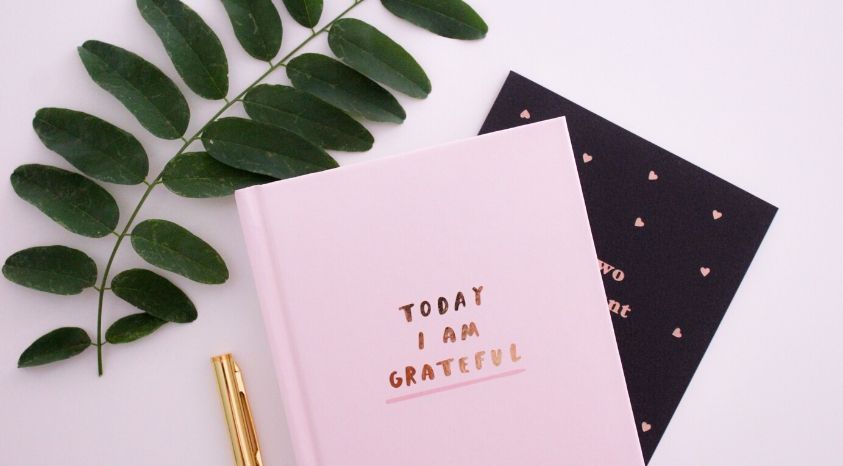7 Tips on How to Practice Gratitude to Beat the #COVID Blues
There are only two ways to live your life. One is though nothing is a miracle. The other as though everything is a miracle. – Albert Einstein
In my last blog post, I shared a few life hacks to help us stay productive while working from home during this challenging time during #COVID19. One of the things I left out was a topic I thought deserved a whole post to itself – practicing gratitude. Why do I think gratitude is such an important topic that I dedicated a whole post to it? Because there are some pretty significant mental and health benefits from doing so, and at times like these, we can use all the help we can get.
So first, let’s look at how we define gratitude.
What is Gratitude?
The word gratitude is derived from the Latin word gratia, which means grace, graciousness, or gratefulness. I like to define gratitude as the art of being in appreciation of something and acknowledging the presence of it, whether tangible or intangible.
Why is Gratitude Important?
Gratitude is important because it keeps us tethered to reality. It takes us beyond ourselves and reminds us of the interconnection and interdependence of all things. It keeps us centered and grounded. And it can lift our spirits and give us comfort during difficult times. Practicing gratitude is the antidote to fear, scarcity and feelings of not being in control. It can remind us that even in the darkest moment, there are things to be thankful for which can immediately land us into an attitude of more generosity and positivity when things are tough.
What are the Benefits of Gratitude?
Recent studies show strong evidence that there are some very positive benefits on our health and well-being by practicing gratefulness. Gratitude can make people happier, improve their relationships, and potentially even counteract depression and suicidal thoughts. In another study, more grateful participants reported fewer health problems (such as headaches, gastrointestinal problems, respiratory infections, and sleep disturbances); in another, they reported fewer physical symptoms (including headaches, dizziness, stomachaches, and runny noses). Although it seems as more research is necessary to show direct correlation between improved health and practicing gratitude, growing research in the area of positive psychology indicates that gratitude can lead to more happiness.
How do we Practice Gratitude?
Before we can be grateful for something, we actually have to stop and notice that “It” is happening. The proverbial “It” is whatever you happen to notice in the moment – it can be as simple as a sunny day with blue skies or it can be acknowledging the thousands of selfless people putting themselves in harm’s way right now who are working the front lines to care for us, provide for us and keep us safe during this pandemic. That step right before gratitude requires mindfulness – the remembering, the stopping, the noticing – all steps necessary to be able to practice gratitude on a regular basis.
When Should We Practice Gratitude?
Anytime is a good time to practice gratitude and I recommend making it part of your daily practice. It can help you accept change, relieve stress and boost your mental health. Feeling grateful can be helpful when going through a tough break-up, when we lose our job, or lose a loved one. When we are trying to manifest more abundance in our life, gratitude is one of the essential steps to staying open to receiving all the goodness coming your way. Saying thank you or giving credit to an employee or a teammate can go a long way as well. People work harder and are more motivated when they feel appreciated. No one likes being taken for granted, so being thankful to your hard working staff shows that you acknowledge their efforts and can make them feel valued.
7 Tips to Practicing Gratitude
Acknowledging the good that you already have in your life is the foundation for all abundance. – Eckhart Tolle
1. Keep a daily gratitude journal.
Start your day with gratitude. Keep a journal by your bedside and upon waking up, jot down a few things you’re grateful for. Do this consistently for at least a month and notice any differences in your mood or in how your day progresses.
2. Write a note or letter of thanks to someone.
This might be a letter you send or decide to keep to yourself. You may decide to write a note of gratitude to someone who has hurt you in the past. This can serve as a deeply healing exercise to help let go of any feelings of resentment and allow you to see the gifts in the situation.
3. Accept each day as a gift.
Remind yourself that each day is a new opportunity. An opportunity to do something kind for someone, to improve yourself, or to make a positive impact. Each day could be your last, so be grateful for the chance to live on this beautiful planet, surrounded by people you love.
4. Enjoy nature’s beauty
One of the easiest ways to practice gratitude is to appreciate the beauty of the natural world. Gaze up at the sun, smell the fresh air, take a walk in nature. Be mindful of the miracles all around you. Stand in awe of how perfect it all is.
5. See beauty in others and pay compliments.
There is nothing better than putting a smile on someone’s face. Giving a kind (and respectful) compliment can go a long way in brightening up their day. It can also make you feel good to do so. Appreciate the beauty in others and let them know you see them for who they are.
6. Keep in mind: there is nothing lacking.
Remind yourself that we live in an abundant world. Scarcity and fear are fixations of our imagination that are used to control us. Allow yourself to trust that things will be OK, that you are taken care of, and that there is enough for everyone (this is for the toilet paper hoarders out there!).
7. Start and end your day with gratitude.
Just like you start your day, end your day with gratitude. It can be in the form of a quick prayer of thanks, a text of appreciation to someone, or a reminder of what went right in your day.
Books on Gratitude
Of course there are some great books written on the subject of gratitude along with some awesome videos about gratitude as well. Here are some of my favorites:
The Gratitude Diaries
By Janice Kaplan
Taking advice from a range of professionals, Kaplan shared both personal experiences and extensive research to explore how gratitude can transform every aspect of life. In this warm, funny book, Kaplan shares with her readers the value of appreciating what you have.
Available from Amazon.
The Psychology of Gratitude
Editors: Michael McCullough, Robert A. Emmons
This text combines the work of prominent scientists from a range of disciplines to look closely at gratitude. It covers historical, philosophical and theoretical foundations of gratitude, then presents current research from a wide variety of sources.
Available from Amazon.
Living in Gratitude: A Journey That Will Change Your Life
By Angeles Arrien
Angeles Arrien asks readers to think about making gratitude their focal point for a whole year. Bringing together teachings from social science, she presents a 12-month ‘gratitude plan’.
Available from Amazon.
During times like these, it’s easy to give into all the fear mongering and feelings of scarcity. It’s imperative that you limit your exposure to content that fills you up with negativity. Focus on the things that are going right, choose to consume content that fills you with joy instead, and remember to be thankful for all that you have. Think of ways that you can spread joy or give back. Get creative and ask yourself – how do I want to show up when things get tough? Practicing gratitude is a choice you can make every day.
I’m grateful to you for making the time to read this post and for sharing it with those that might benefit!
Want to be happy? Be grateful by David Steindl-Rast











Hi sir,
very good explanation about Gratitude. you would love to see my Secret of happiness-gratitude article as well.
Thank you once again….
Great article! Didn’t know there were books on gratitude.
Very useful and insightful!
Thank you for this! Much helpful.